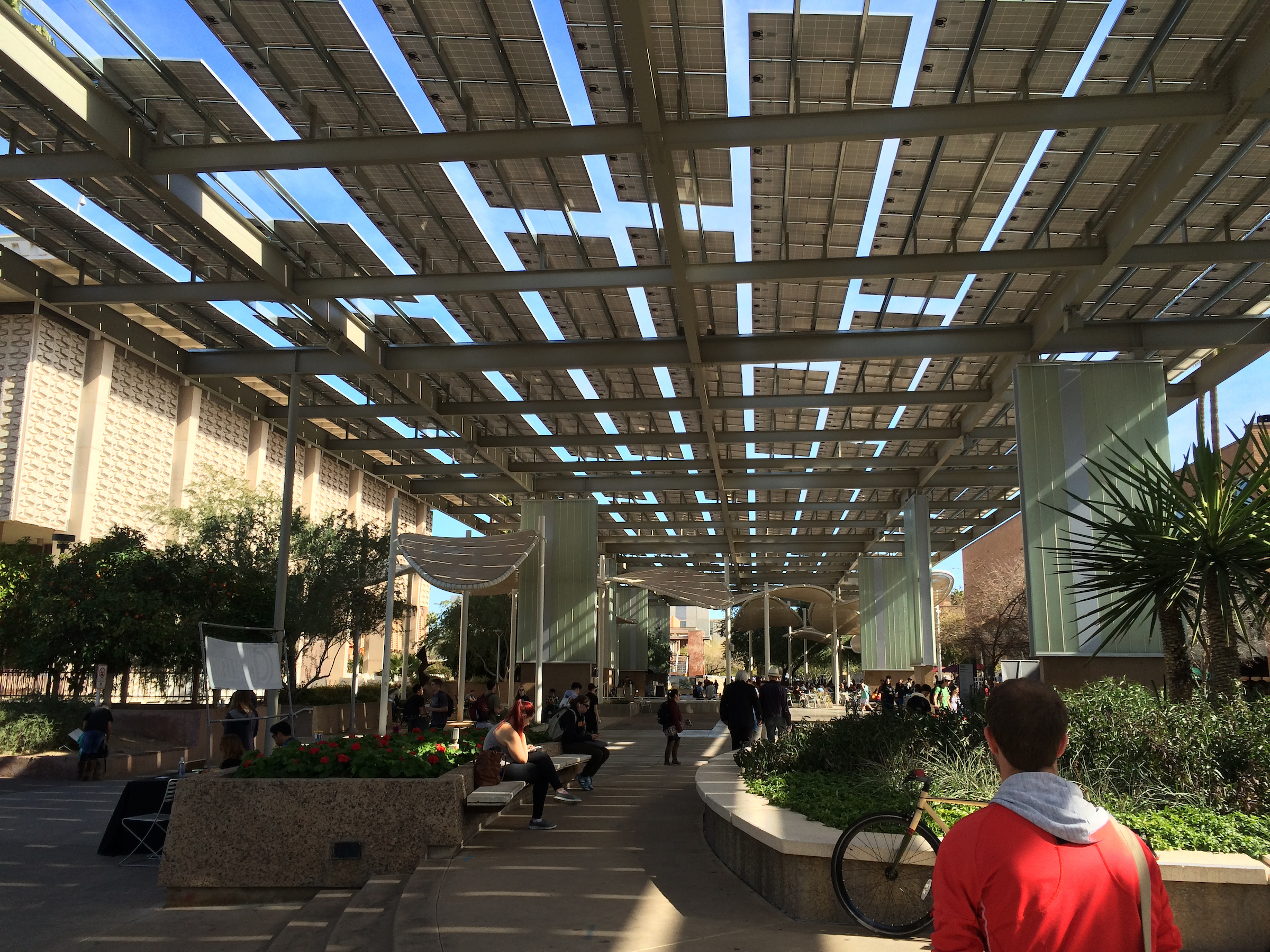ASU celebrates 50 years of Earth Day with 50 days of sustainability events
University community urged to pledge to make an adjustment, big or small, for Carbon Free Day on April 15
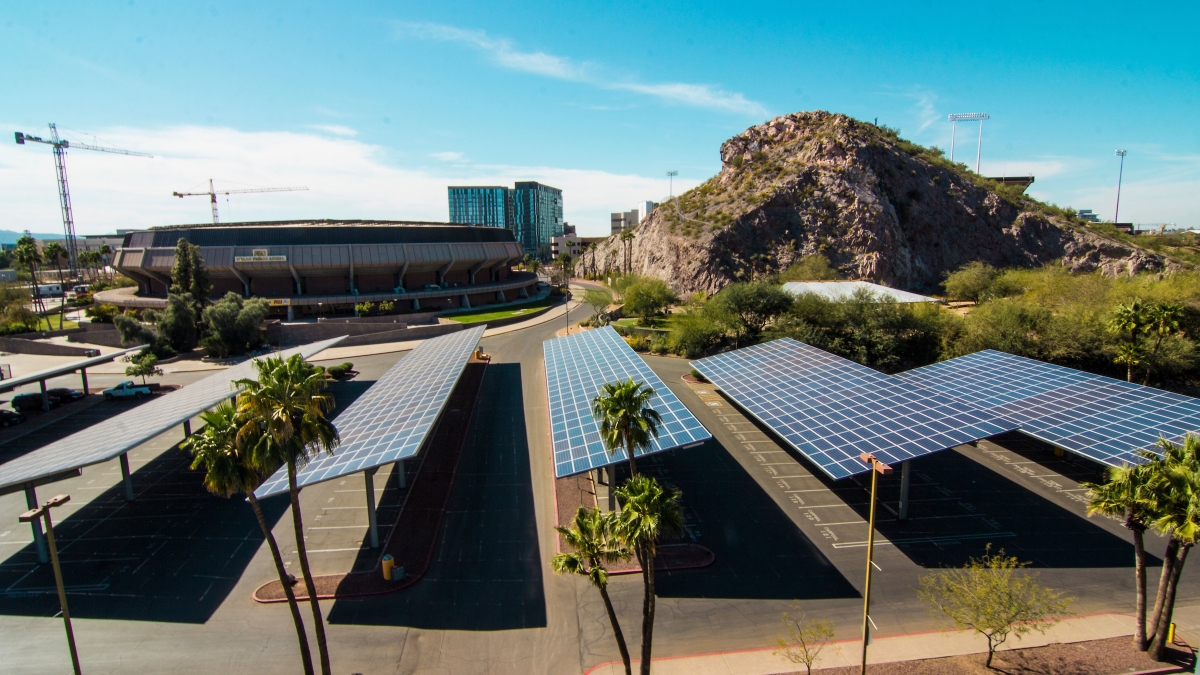
The first Earth Day in 1970 was catalyzed at college campuses.
The event was launched after Americans were horrified by a massive oil spill off Santa Barbara, California, that killed thousands of animals, as well as the publication of the ground-breaking book “Silent Spring,” by Rachel Carson.
The date of the first Earth Day — April 22 — was chosen to express this newfound environmental awareness because it fell after spring break and before final exams, according to the Earth Day Network. Thousands of protests were held that day, with many on college campuses.
As the world marks the 50th anniversary of Earth Day this year, Arizona State University is taking 50 days to celebrate the beginning of the modern environmental movement. A new website lists events by and for the entire ASU community from March 12 through April 30, plus news stories, a historical timeline of Earth Day and a place to make a pledge for ASU’s Carbon Free Day on April 15, happening in conjunction with the Earth Day Festival on the Tempe campus. Visit earthmonth.asu.edu/events and scroll down for a day-by-day listing of events.
The Earth Month 2020 events, held across ASU’s campuses, range from one-hour webinars on sustainable bathroom practices to a "trading post" clothing swap, a chance to test drive electric vehicles at the West campus, an edible landscape tour and a discussion of the epically tree-hugging book “The Overstory” by Richard Powers. At the April 15 Earth Day Festival, student organizations and community partners will gather near the Memorial Union to showcase their work and celebrate the collective efforts of the ASU community.
Everyone in the ASU community is asked to make a pledge for Carbon-Free Day on April 15, with options in travel, food and energy, according to Susan Norton, program manager for University Sustainability Practices at the Polytechnic campus.
“Throw away the right stuff and recycle the right stuff.”
— Michael Dalrymple, director of sustainability practices at ASU
“You could do ride sharing with co-workers, or using alternative transportation such as biking or bus or the light rail, if that works for you,” Norton said.
“You could create a meal plan for the week so you’re not doing those last-minute runs to the grocery store. Small things can add up.”
Moving toward a more plant-based diet and away from red meat is another way to reduce carbon, according to Michael Dalrymple, director of sustainability practices at ASU. The industrial production of beef in the U.S. adds to methane in the atmosphere as well as groundwater pollution.
One way to try a more plant-based diet is to experiment with some of the ethnic cuisines that are flourishing in the Valley, he said.
“There are a lot of cultures that put less emphasis on meat,” he said. “... It’s an opportunity to go out and try those plant-based foods that have lots of cool, different flavors where there might be some meat but it’s less.”
Dalrymple is also urging everyone at ASU to be more conscious of recycling.
“We can’t expect people to recycle if we don’t have the infrastructure, so now we the infrastructure and we have to get them to use it the right way,” he said. “Throw away the right stuff and recycle the right stuff.”
Even without deliberate effort, everyone living and working on ASU’s campuses is part of the university’s sustainability efforts, including the 90 solar panel arrays that not only generate power but also provide shade, cooling the campus. Other recent changes include:
• The university has been gradually converting patches of grass that are unused into low-water-use landscapes. “If the grass is providing a space for an event or for students to hang out, it hasn’t gone away. But those odd-shaped pieces that don’t serve any purpose have been converted,” he said.
• By Earth Day, on April 22, Aramark will eliminate all plastic straws on campus, switching to paper straws at all dining halls and Memorial Union vendors.
• The Orange Mall space outside the Student Pavilion has become the first fully SITES-certified landscape in Arizona, designed to reduce water and energy consumption, collect stormwater runoff and increase outdoor recreation opportunities.
• The university has just completed a two-year project to install 56 electric-vehicle charging stations.
Solar installations around campus not only generate power but also provide shade, cooling the campus. Photo by ASU Now
Dalrymple recommends one small adjustment to get started on being more sustainable.
“We’re all hypocrites, not doing all the right things like walking or biking everywhere or being vegan,” he said.
“A lot of people don’t start because they think, ‘There’s no way I can live like that.’
“Don’t feel guilty. If your goal is to be a tiny bit less hypocritical every day, it’s amazing how much your life changes. Something that seemed daunting suddenly, six months later, doesn’t seem daunting anymore.”
Top photo: Solar panels cover the parking lot outside of the Desert Financial Arena on ASU's Tempe campus. Photo by ASU Now
More Environment and sustainability
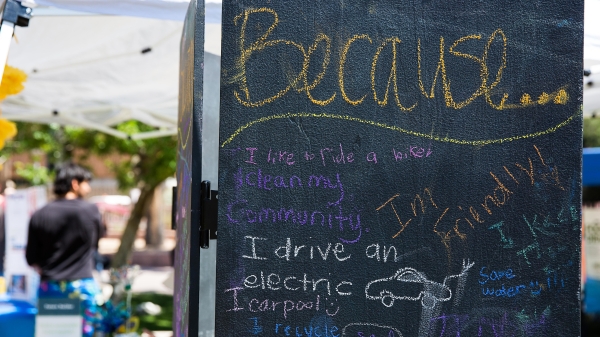
Earth Day celebrations focus on making our planet a priority
On April 22, Earth Day is celebrated across the country and in nearly 193 countries around the world. Arizona State University will be part of that celebration. The university has planned more…
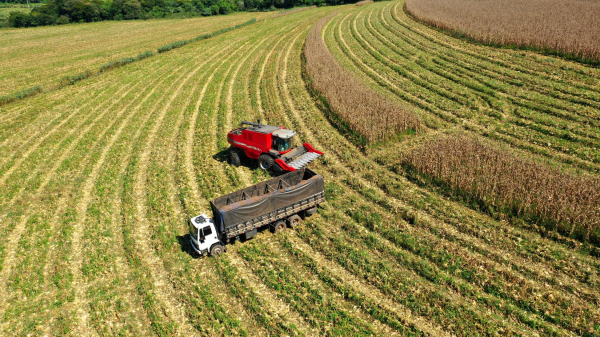
ASU scientist studies how bans, regulations on food technology affect consumer acceptance, perceptions
How do people process scientific developments with outside influences, warnings, biases and others’ opinions filtering in? That’s the question Caitlin Drummond Otten, environmental social scientist…
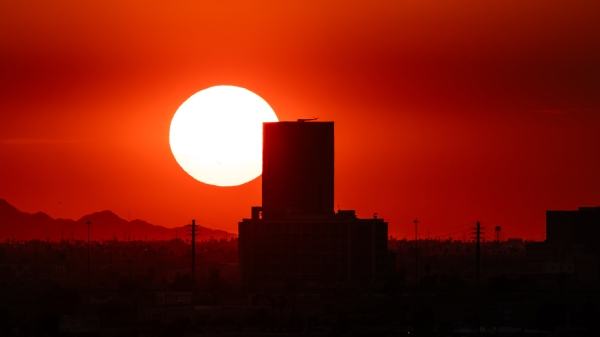
ASU team's research leads to new law protecting mobile-home dwellers
Arizona Gov. Katie Hobbs signed a law earlier this month that guarantees mobile-home owners’ right to install cooling measures, thanks in large part to the work of an Arizona State University team.…
